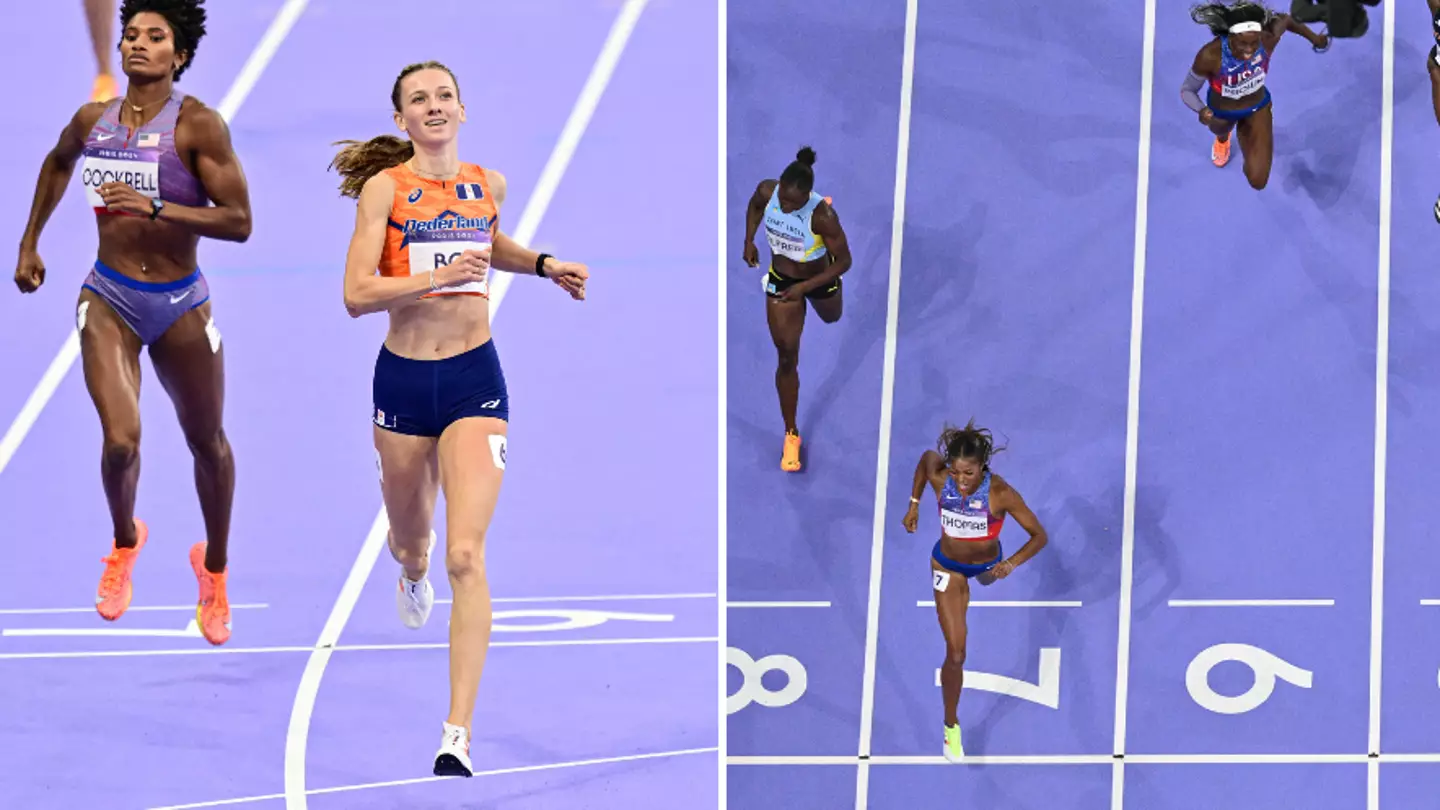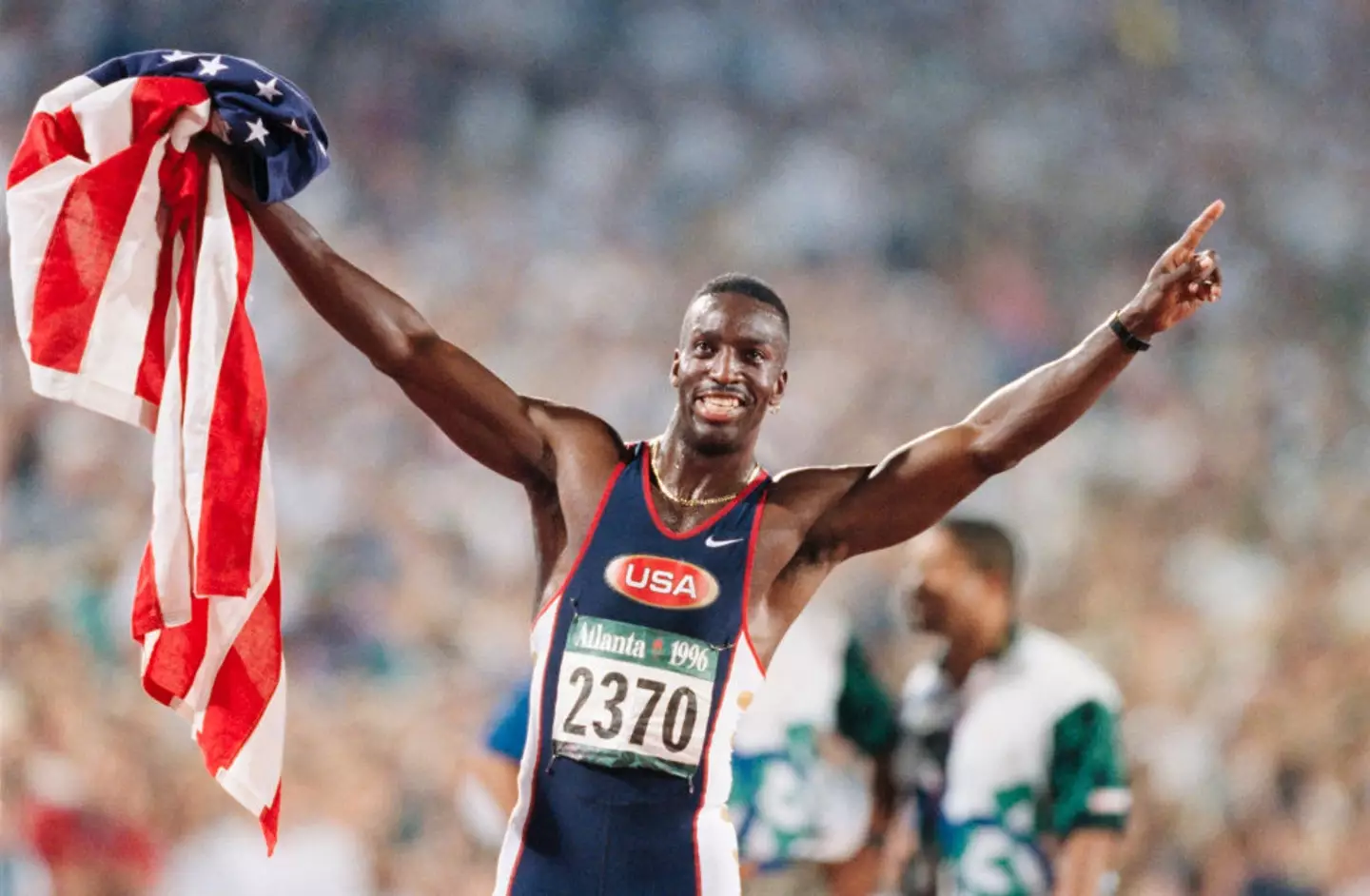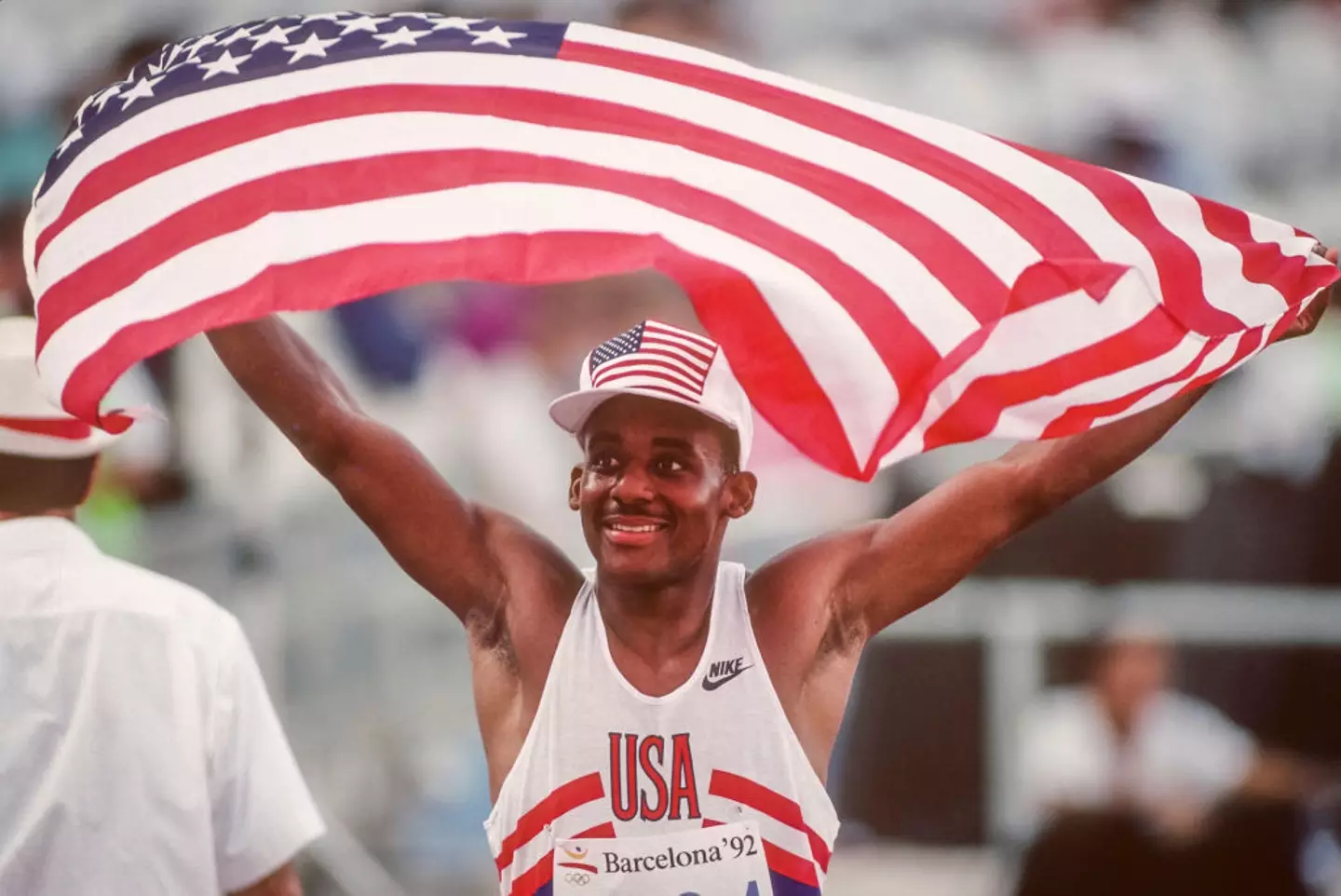
If you've ever wondered why it is that sprinters 'ease up' towards the end of a race, aka slow down before reaching the finish line, you're not alone.
Due to athletes spending their entire lives working up to the moments where they get to compete, especially in the Olympics, you'd assume everything you see happens for a reason - but with this phenomenon, people are divided.

According to Phil Athletics, when it's done without any other choice, it's known as 'hitting the wall', when an athlete has depleted all of their energy and can see their dreams of glory snatched away in front of their very eyes.
Advert
But when looking to an example where it's worked in an athletes favour, also known as 'pacing', it's good practice to use Michael Johnson as an example.
Johnson, who according to the official Olympics website, enjoyed 'the pinnacle of his track career ... at the Atlanta Olympic Games in 1996', during which '83,000 spectators looked on as Johnson, resplendent in his golden running shoes, completed a remarkable 200m-400m double, an achievement never matched before or since in men’s athletics.'
He is noted by Runner's World for the manner in which he was able to 'get out fast, secure the win and shut it down early to conserve energy for the final.'
It's a move which has been replicated many times since, though it's not always clear whether it's been strategic or unavoidable.
Advert
Interestingly, Johnson's coach, Clyde Hart, holds the controversial opinion that it doesn't actually do much to conserve energy.

He said: "I don’t think it does. Backing off the last stride or two is more of an ego thing. The sprinters are saying, “Here I am out front. I can ease up and still beat you.”
Ato Boldon, sprinter and four-time Olympic medallist, added: "In your own mind you are thinking that I 'shut it down' before the line came, which means that 'I still can go much faster'.
Advert
"Unless it's in a quarter-final round or heat and it's a significant shutdown, it's really not to save any energy, because none is saved by running 35 out of 44 steps of a 100-meters hard and backing off for those final nine."
It's been noted American athlete Mike Marsh, won gold at the 1992 Olympics, did so after easing up a few steps.
Runners World state further: "Although Marsh went on to win the gold medal in the event, he never ran faster than in that easing-up semi-final."
So, it seems it's very much a case by case situation - though unless you're completely sure, you might just be best off running as fast as you can for the entire race.